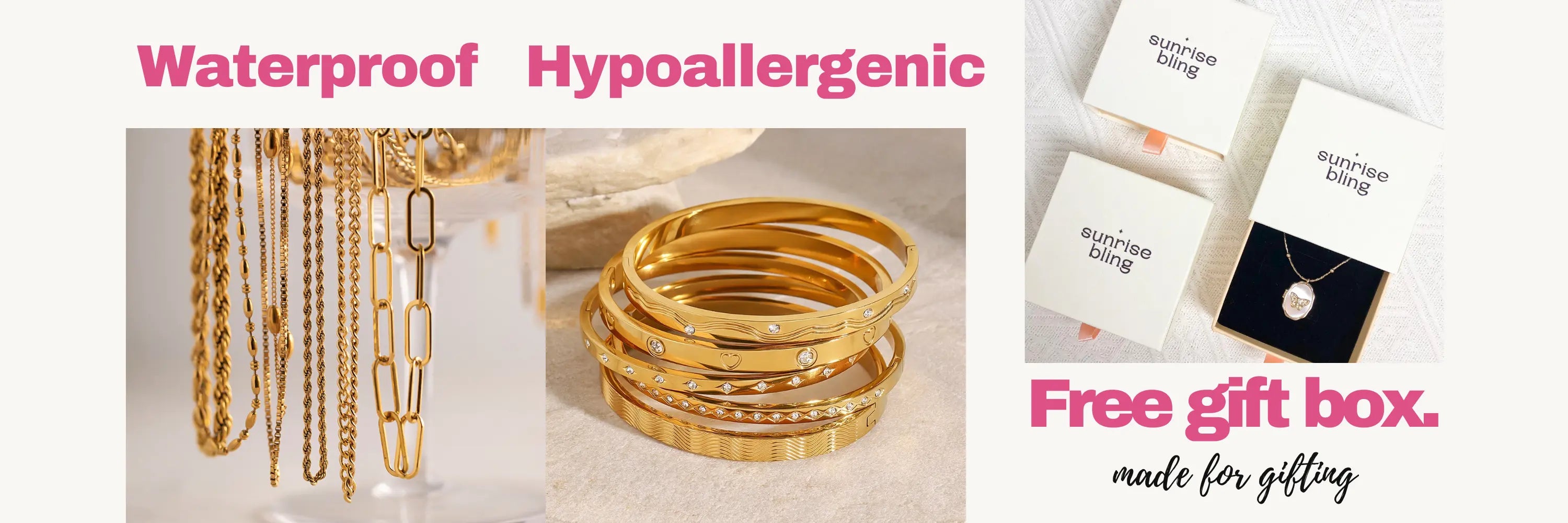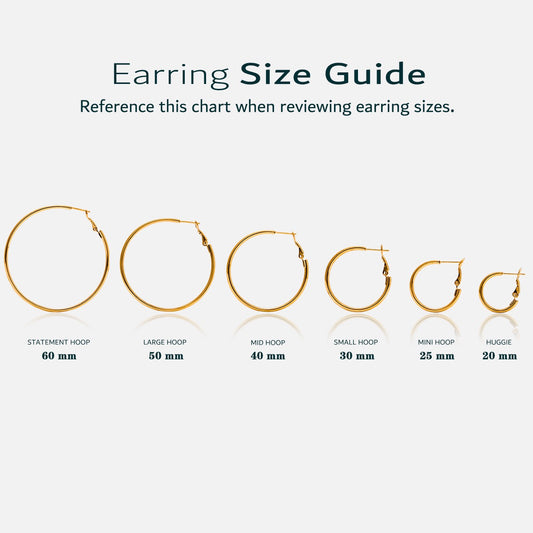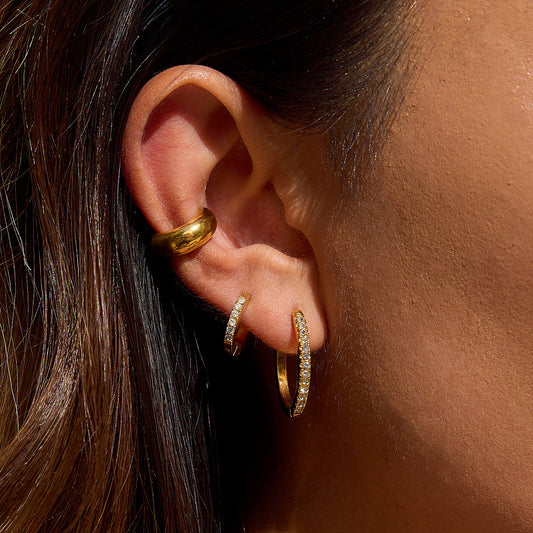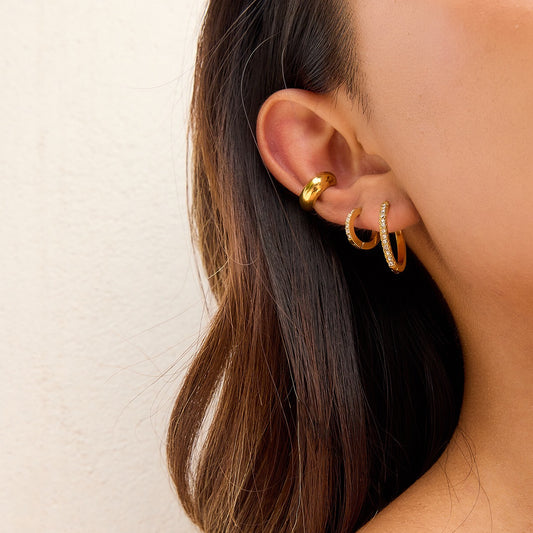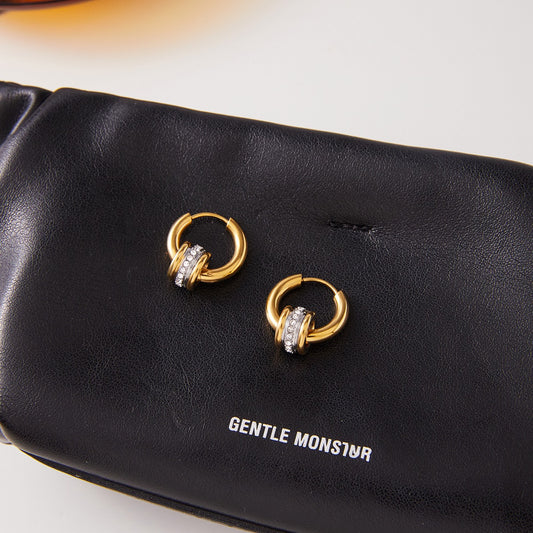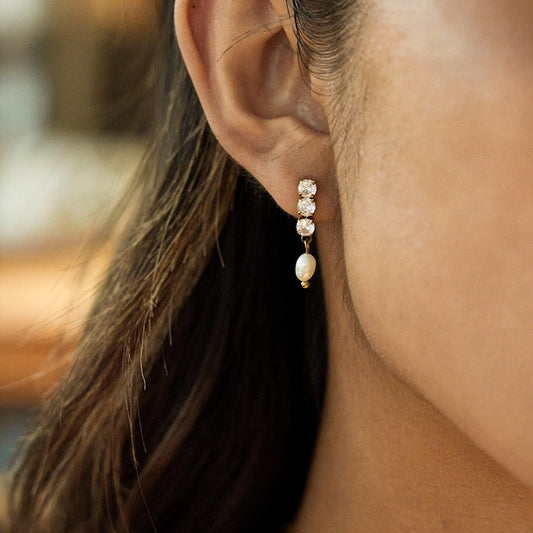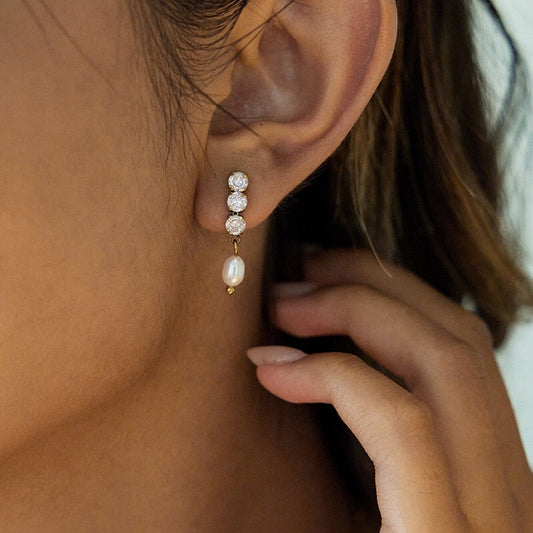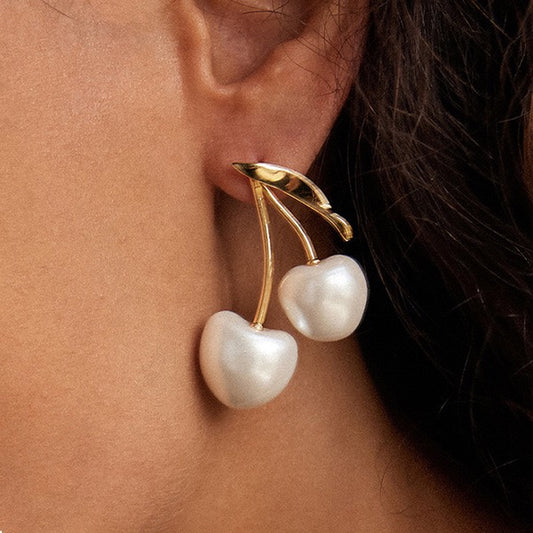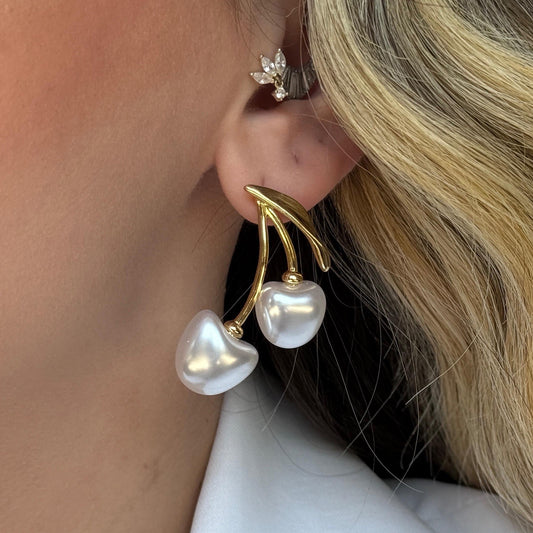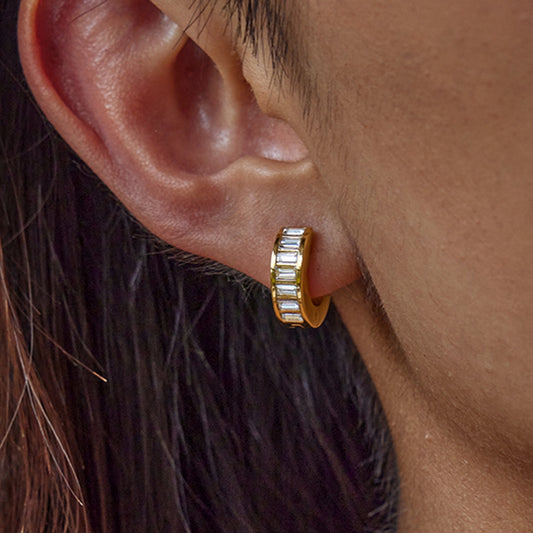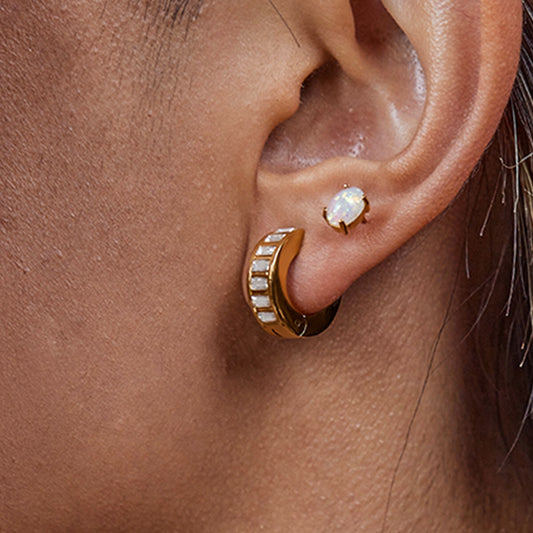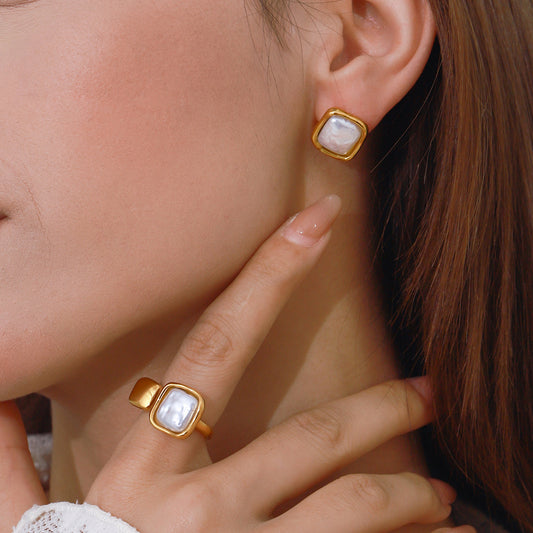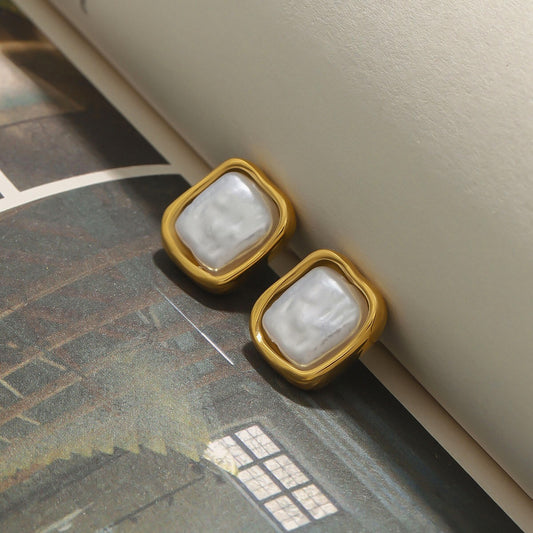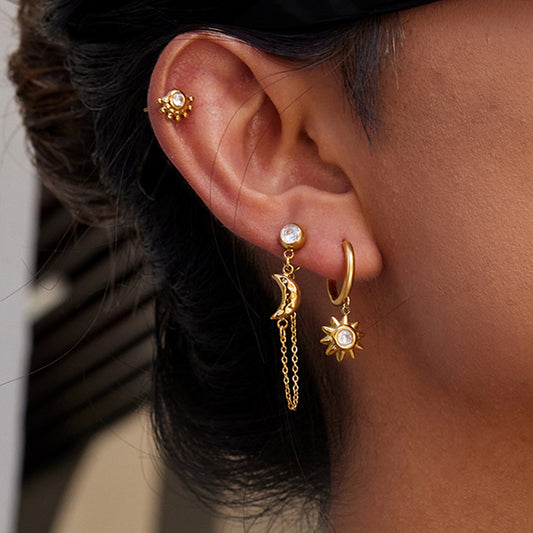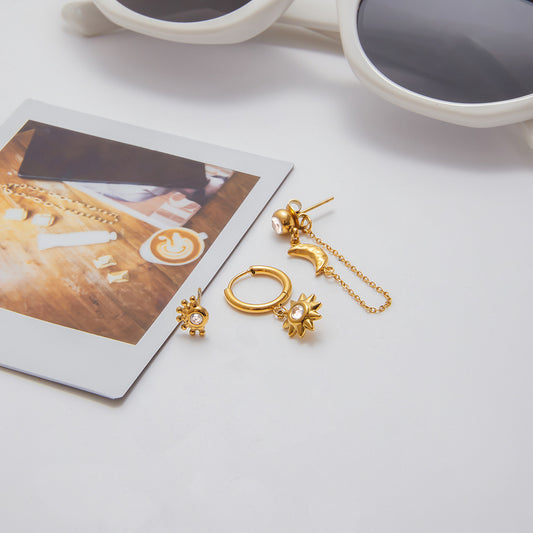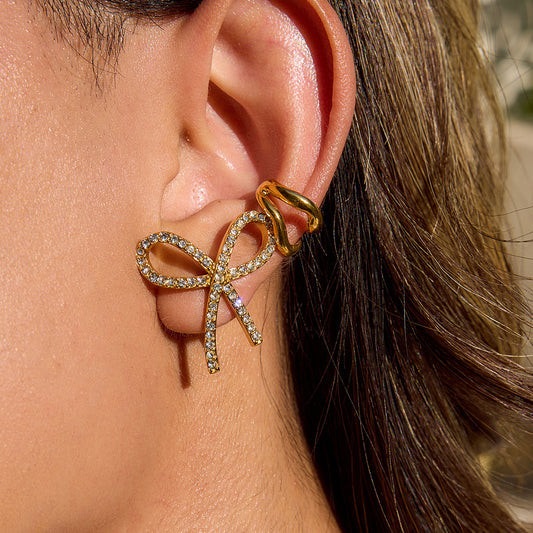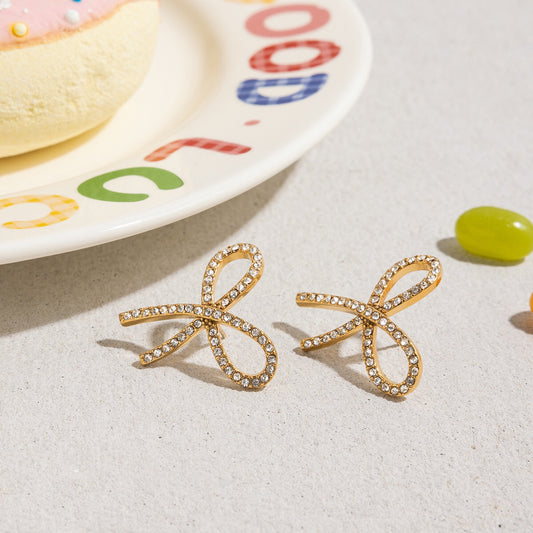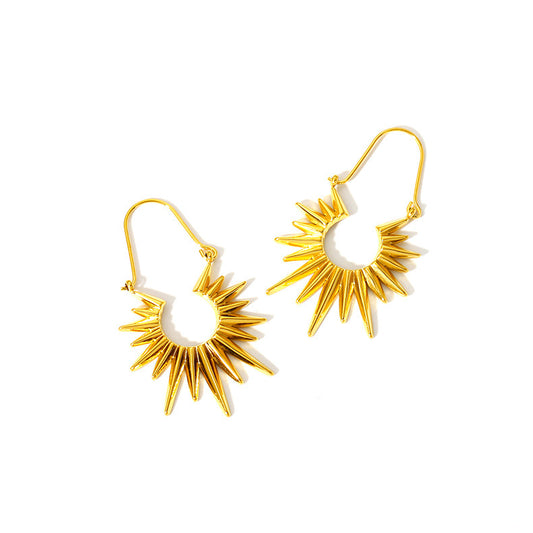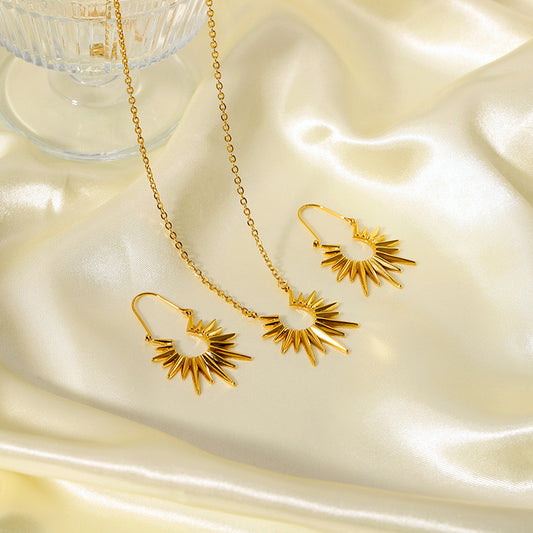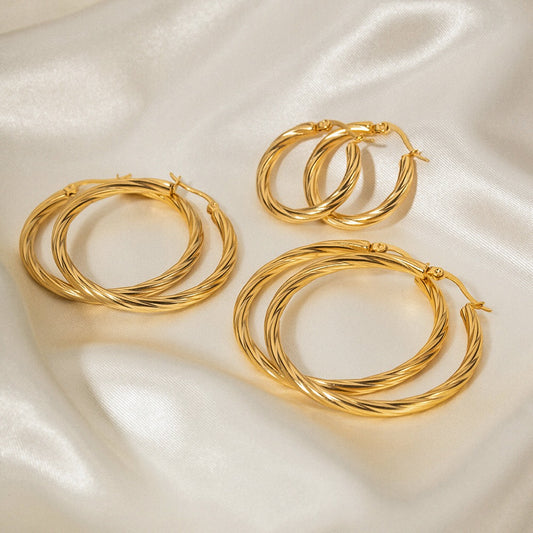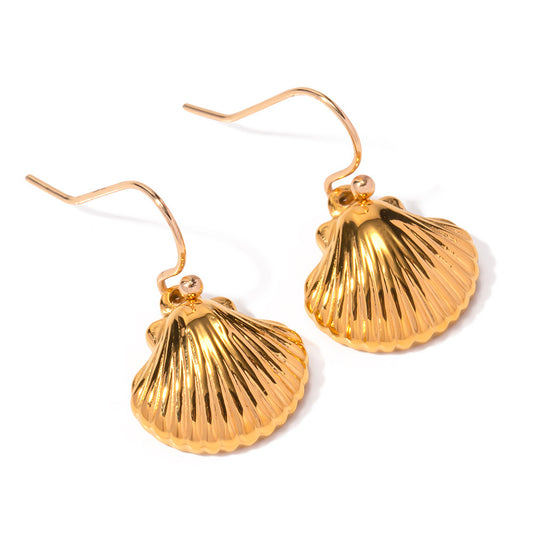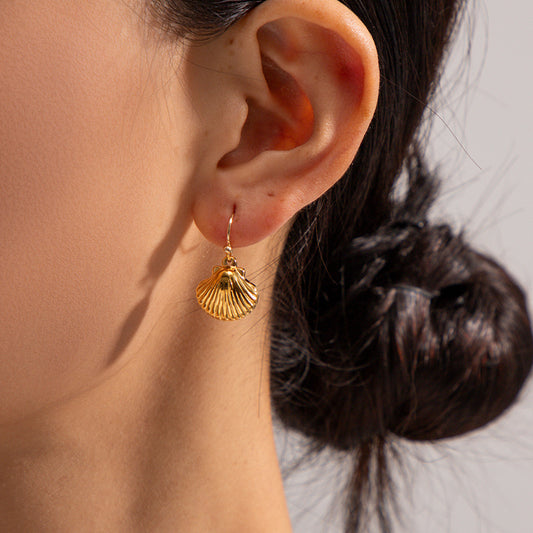Knowing how to clean earrings is essential for keeping your favorite pieces shiny, hygienic, and long-lasting—but with so many materials (gold, silver, gemstones, plated metals) and styles (studs, hoops, drops), it’s easy to feel unsure where to start. According to a 2024 Jewelry Care Survey, 68% of people admit to never cleaning their earrings regularly, leading to buildup of dirt, oil, and bacteria that can cause skin irritation or dull sparkle over time. The good news? The global jewelry market size was estimated at USD 366.79 billion in 2024 and is projected to reach USD 578.45 billion by 2033, growing at a CAGR of 5.3%. Cleaning earrings doesn’t require fancy tools or expensive products—most methods use household items you already have. In this guide, we’ll break down how to clean earrings for every material, share pro tips to avoid damage, and answer common questions like “how often should you clean them?” and “can you use alcohol?”
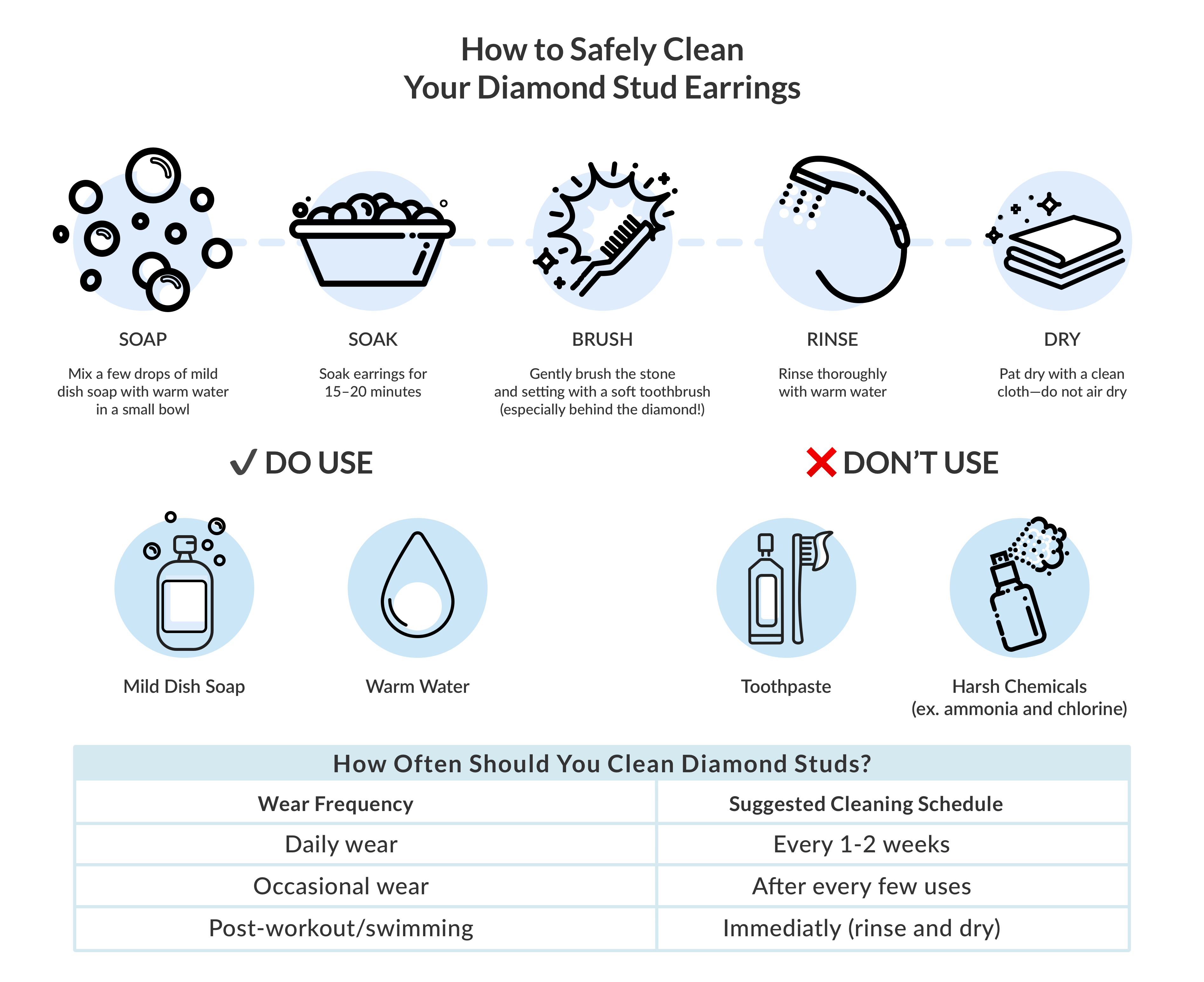
Why Regular Earring Cleaning Matters
Hygiene First: Prevent Skin Irritation
Earrings sit close to the skin, collecting sweat, lotion, perfume, and dead skin cells daily. This buildup can clog earring holes, leading to redness, itching, or even infections (especially for new piercings). A 2024 Dermatology Study found that earrings not cleaned for 2+ weeks have 3x more bacteria than freshly cleaned pairs—making regular cleaning a must for sensitive skin.
Preserve Sparkle & Longevity
Dirt and oil can dull the shine of metals and gemstones over time. For example, silver earrings may tarnish faster if left dirty, while diamond or CZ studs lose their brilliance under a layer of grime. Regular cleaning removes this buildup, keeping your earrings looking like new for years.
Avoid Permanent Damage
Certain substances (like chlorine from pools or hairspray) can damage earrings if left on too long. For instance, gold-plated earrings may peel if exposed to harsh chemicals, and semi-precious stones (like turquoise) can absorb moisture and discolor. Cleaning earrings after wear prevents these issues from becoming permanent.
Tools You’ll Need to Clean Earrings
You don’t need specialized equipment—grab these household items for safe, effective cleaning:
-
Mild dish soap: Unscented, gentle options (like Dawn) work best—avoid antibacterial soaps with harsh chemicals.
-
Warm water: Not hot (heat can damage gemstones or loosen settings).
-
Soft-bristled brush: A child’s toothbrush, makeup brush, or jewelry brush—ideal for scrubbing small crevices (like earring posts or hoop interiors).
-
Lint-free cloth: Microfiber or jewelry cloths (avoid paper towels, which can scratch metal).
-
Cotton swabs: For cleaning tiny areas (like the back of studs or gemstone settings).
-
Optional extras: White vinegar (for silver tarnish), baking soda (for tough grime), or rubbing alcohol (for metal earrings—use with caution).
Pro Tip: Never use abrasive tools (like steel wool or scouring pads) or harsh chemicals (bleach, ammonia) — they’ll scratch metals, damage plating, or ruin gemstones.

How to Clean Earrings by Material
Different materials require different care—here’s how to clean earrings safely for every type:
1. How to Clean Metal Earrings (Gold, Silver, Platinum)
Gold Earrings (Solid or Vermeil)
Gold is durable, but still needs gentle care to avoid scratching:
-
Mix 1–2 drops of mild dish soap with warm water in a small bowl.
-
Submerge the earrings and let them soak for 10–15 minutes (this loosens dirt).
-
Use a soft-bristled brush to gently scrub the earrings—focus on posts, backs, and any engravings.
-
Rinse under warm running water to remove soap residue.
-
Pat dry with a lint-free cloth—never air-dry (moisture can cause tarnish for gold-plated styles).

Silver Earrings (Sterling or Plated)
Silver is prone to tarnishing (dark spots from exposure to air and moisture)—here’s how to clean it:
-
For light tarnish: Mix 1 part mild dish soap with 3 parts warm water. Soak earrings for 5 minutes, then scrub gently with a brush and rinse.
-
For heavy tarnish: Make a paste with 1 tsp baking soda and 1 tsp water. Apply a tiny amount to the silver with a cloth, rub gently in circular motions, then rinse and dry.
-
For sterling silver: Use a silver polishing cloth (avoid liquid polish for plated silver—it strips the coating).
Platinum Earrings
Platinum is tough but can develop a “patina” (dull layer) over time—clean it like this:
-
Soak earrings in warm, soapy water for 15 minutes.
-
Scrub gently with a soft brush to remove dirt.
-
Rinse and dry with a lint-free cloth—no extra polish needed (platinum’s patina is often desired, but cleaning restores its shine if you prefer).
2. How to Clean Gemstone Earrings (Diamonds, CZ, Semi-Precious Stones)
Gemstones vary in hardness—softer stones (like opal, turquoise) need extra care:
Hard Gemstones (Diamonds, CZ, Sapphires, Rubies)
These stones are durable and can handle gentle scrubbing:
-
Mix warm water and mild dish soap in a bowl.
-
Soak earrings for 10 minutes (avoid soaking diamonds for too long—they can absorb water and loosen settings).
-
Use a soft brush to scrub the gemstone surface and setting (dirt often hides under prongs).
-
Rinse with warm water and dry with a cloth—buff gently to restore sparkle.

Soft Gemstones (Turquoise, Opal, Pearl, Emerald)
These stones are delicate—avoid soaking or scrubbing too hard:
-
Dampen a lint-free cloth with warm, soapy water.
-
Gently wipe the gemstone surface (never rub in circles—this can scratch opal or pearl).
-
Use a cotton swab to clean small areas (like setting crevices) with a tiny amount of soapy water.
-
Dry immediately with a clean cloth—soft stones absorb moisture, which can cause discoloration.
3. How to Clean Plated Earrings (Gold-Plated, Silver-Plated, Rose Gold-Plated)
Plated earrings are delicate—too much scrubbing can peel the coating:
-
Mix a small amount of mild dish soap with warm water.
-
Dip a cotton swab in the solution and gently wipe the earrings (focus on dirty areas like posts).
-
For hoops or studs, use a soft cloth dampened with soapy water to wipe the surface—avoid submerging the entire earring (water can seep under the plating and cause peeling).
-
Dry thoroughly with a lint-free cloth—never use polish or vinegar (they’ll strip the plating).
4. How to Clean Costume Jewelry Earrings
Costume jewelry is often made with plastic, resin, or low-quality metals—clean it carefully:
-
Dampen a cotton swab with warm water (no soap—soap can discolor plastic).
-
Gently wipe the earrings to remove dirt and oil.
-
For tough grime, use a tiny amount of mild soap on the swab—rinse quickly and dry immediately.
-
Never soak costume jewelry—water can damage glue holding stones in place.

How to Clean Earrings with Special Features
Some earrings have unique designs that need extra care—here’s how to clean them:
How to Clean Hoop Earrings
Hoops have inner surfaces that collect dirt easily—use these steps:
-
Soak the hoop in warm, soapy water for 5 minutes.
-
Use a soft-bristled brush to scrub the inside of the hoop (twist the brush to reach all areas).
-
For hinged hoops, clean the clasp with a cotton swab dipped in soapy water—make sure the hinge moves freely after drying.
How to Clean Stud Earrings
Studs (especially those with backs) trap dirt between the post and back—clean them like this:
-
Remove the earring back and soak both the stud and back in soapy water for 5 minutes.
-
Scrub the post with a cotton swab (the tip works well for the small surface).
-
Clean the inside of the back with a brush or swab—this is where most bacteria buildup happens.
-
Rinse and dry both parts before reattaching.
How to Clean Drop/Dangle Earrings
Drop earrings have chains or moving parts that can get tangled—avoid soaking them:
-
Dampen a cloth with soapy water and wipe the chain or dangle part gently.
-
Use a cotton swab to clean the connection between the drop and the earring post.
-
Dry each part separately to prevent water from getting stuck in chains (which can cause rust).
How Often Should You Clean Earrings?
The frequency depends on how often you wear them and your skin type:
-
Daily-worn earrings: Clean them every 1–2 weeks to prevent bacteria buildup.
-
Occasional-worn earrings: Clean them before and after wear (e.g., before a party to restore sparkle, after to remove sweat).
-
New piercings: Clean earrings and piercing holes daily with a saline solution (avoid soap) for the first 6–8 weeks to prevent infection.
-
Silver earrings: Clean every 2–3 weeks to prevent tarnish, even if not worn often.
Common Mistakes to Avoid When Cleaning Earrings
Mistake 1: Soaking Delicate Materials
Never soak soft gemstones (opal, pearl), plated earrings, or costume jewelry—water can damage them. Instead, use a damp cloth for spot cleaning.
Mistake 2: Using Harsh Chemicals
Rubbing alcohol, bleach, or jewelry cleaner with ammonia can ruin gold plating, discolor gemstones, or scratch metals. Stick to mild soap and water for most earrings.
Mistake 3: Scrubbing Too Hard
Abrasive brushing can scratch metals, loosen gemstone settings, or peel plating. Use gentle, circular motions with a soft brush—let the soapy water do the heavy lifting.
Mistake 4: Forgetting to Dry Thoroughly
Moisture is the main cause of tarnish, rust, and discoloration. Always pat earrings dry with a lint-free cloth—pay extra attention to small crevices (like post holes) where water can hide.
How to Clean Earrings: FAQs
Can I use rubbing alcohol to clean earrings?
Rubbing alcohol (70%) is safe for solid metal earrings (gold, silver, platinum) but avoid it for plated earrings, gemstones, or costume jewelry—it can strip plating or damage stones. For metal earrings, dampen a cloth with alcohol and wipe gently, then dry.
How do I clean earrings with stuck-on grime?
For tough grime (like hairspray or lotion), soak metal or hard gemstone earrings in warm, soapy water for 20 minutes. If grime remains, make a paste with baking soda and water, apply a tiny amount to the area, and scrub gently—then rinse immediately.
Can I clean earrings in the dishwasher?
No! Dishwashers use hot water, harsh detergents, and high pressure—all of which can damage earrings (loosen settings, scratch metal, or ruin gemstones). Stick to hand cleaning.
Conclusion: How to Clean Earrings—Simple, Safe, and Effective
Cleaning earrings doesn’t have to be a chore—with the right tools and methods, you can keep your favorite pairs shiny, hygienic, and long-lasting. Whether you’re cleaning gold studs, silver hoops, or gemstone drops, the key is to match the cleaning method to the material and avoid harsh chemicals or scrubbing. By cleaning your earrings regularly (every 1–2 weeks for daily wear), you’ll prevent skin irritation, preserve their sparkle, and enjoy them for years to come.
Ready to give your earrings a refresh? Start by:
-
Sorting your earrings by material (metal, gemstone, plated) to choose the right method.
-
Gathering your tools (mild soap, warm water, soft brush, lint-free cloth).
-
Setting aside 5–10 minutes to clean a few pairs each week—make it part of your routine (e.g., while watching TV).
Don’t let dirty earrings dull your style or harm your skin. With these simple steps, you’ll know exactly how to clean earrings for every occasion—keeping them looking their best, always.


